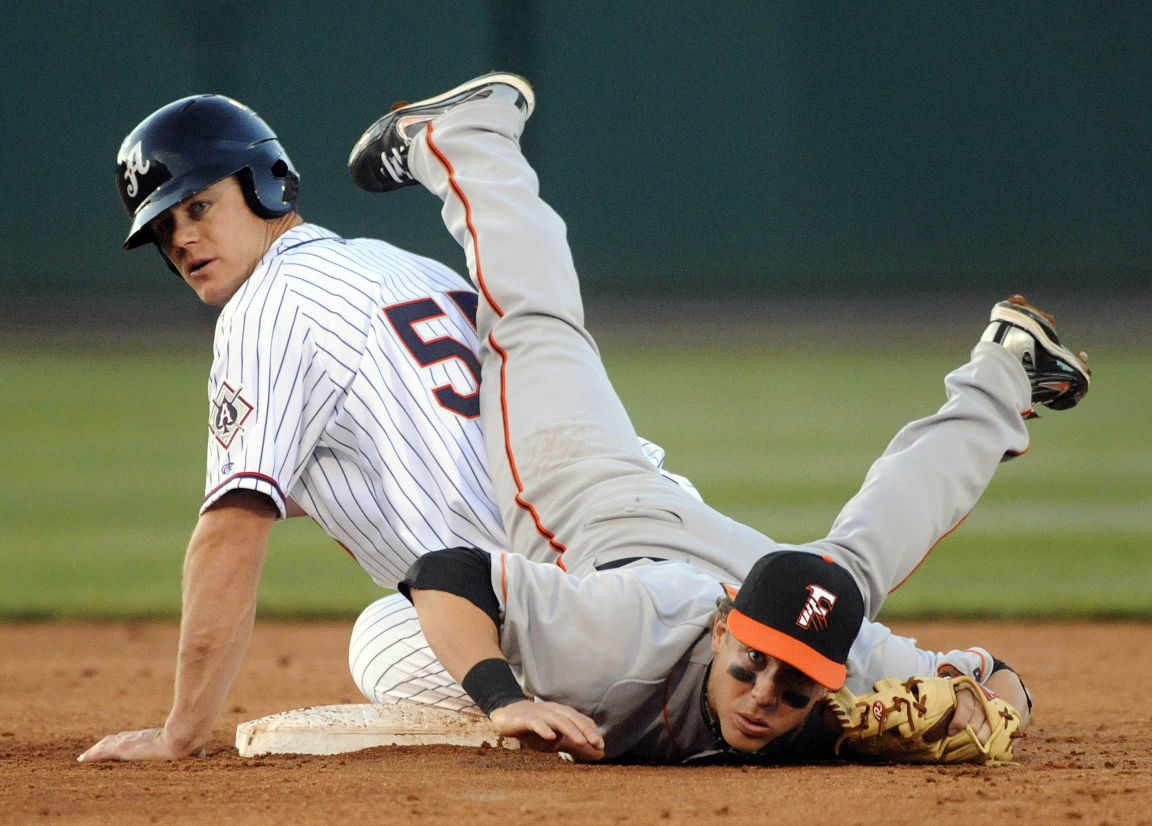Reno is aces as a baseball town; meanwhile, Tucson's desolate
Seven years after some rich guy from Indiana bought the Tucson Sidewinders and moved them to Reno, I understand why.
On Friday, I walked around the Freight House District that surrounds Aces Ballpark in downtown Reno. I counted 12 bars and restaurants within the distance of a long fly ball.
Duffy’s Ale House. Arroyo Mexican Grill. 250 Lounge. Last week, Reno Aces’ owner, Herb Simon, who also owns the NBA’s Indiana Pacers, announced the ballpark will henceforth be home to a United Soccer League expansion team.
Not all has gone well in the Aces’ move from Kino Stadium; Simon and the city of Reno have argued publicly over $2 million in unpaid property taxes. But the move to Reno served its purpose: It revitalized a dreary area of downtown Reno and has made it a place to see and be seen, on game day or any day.
By comparison, Kino Stadium sits mostly vacant, a home to pigeons. There is no “district.” There is, instead, the empty feeling of being dumped.
Arizona baseball coach Jay Johnson, who spent the last two years coaching the Nevada Wolf Pack, said part of the reason he left the successful San Diego Toreros staff to coach in Reno was the city’s baseball vibe.
“It was pitched to me as a baseball town, and it lived up to that, for sure,” he said. “I know they sold out a lot of games. It’s right downtown, behind Harrah’s. It’s known as a place to socialize and to watch baseball.”
In 2008 — the Sidewinders’ last Pacific Coast League season in Tucson — the franchise drew 3,552 per game, which was 16th of 16 PCL teams. In the Aces’ seven years in Reno, its lowest average attendance was 4,921 in 2013. It’s high: 6,481 in its inaugural season, 2009.
I get the feeling it’s not the baseball that really matters in Reno. It’s the community’s sense that building a downtown baseball stadium created a hub that gave it an identity beyond a place tourists gather to gamble.
Meanwhile, Tucson sits dark in the summer sports season because politicians in 1993 chose to build a ballpark in no man’s land and, in effect, sentence Tucson’s spring training and Pacific Coast League ventures to certain doom.





